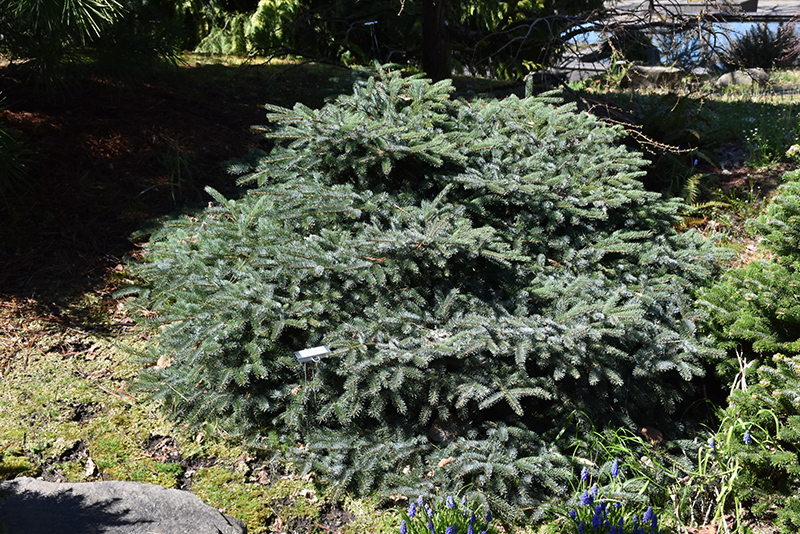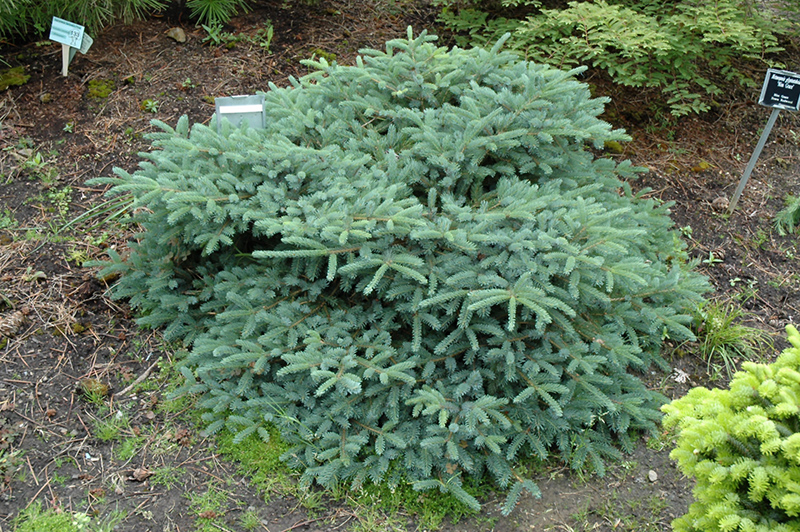Alcock Prostrate Spruce
Picea alcoquiana 'Prostrata'
Height: 24 inches
Spread: 24 inches
Sunlight:
![]()
Hardiness Zone: 4b
Other Names: syn. Picea bicolor 'Prostrata', Alcock Spruce
Description:
A flat, ground hugging selection that will spread in all directions; unique gray-green foliage with silver-blue undersides; makes an outstanding groundcover with great texture
Ornamental Features
Alcock Prostrate Spruce is a dwarf conifer which is primarily valued in the garden for its broadly spreading habit of growth. It has attractive grayish green foliage with silvery blue undersides which emerges light green in spring. The small needles are highly ornamental and remain grayish green throughout the winter.
Landscape Attributes
Alcock Prostrate Spruce is a dense multi-stemmed evergreen shrub with a ground-hugging habit of growth. Its relatively fine texture sets it apart from other landscape plants with less refined foliage.
This is a relatively low maintenance shrub. When pruning is necessary, it is recommended to only trim back the new growth of the current season, other than to remove any dieback. It has no significant negative characteristics.
Alcock Prostrate Spruce is recommended for the following landscape applications;
- Mass Planting
- Rock/Alpine Gardens
- General Garden Use
- Groundcover
- Naturalizing And Woodland Gardens
Planting & Growing
Alcock Prostrate Spruce will grow to be about 24 inches tall at maturity, with a spread of 24 inches. It tends to fill out right to the ground and therefore doesn't necessarily require facer plants in front. It grows at a medium rate, and under ideal conditions can be expected to live for 50 years or more.
This shrub should only be grown in full sunlight. It does best in average to evenly moist conditions, but will not tolerate standing water. It is not particular as to soil type or pH. It is somewhat tolerant of urban pollution, and will benefit from being planted in a relatively sheltered location. This is a selected variety of a species not originally from North America.





